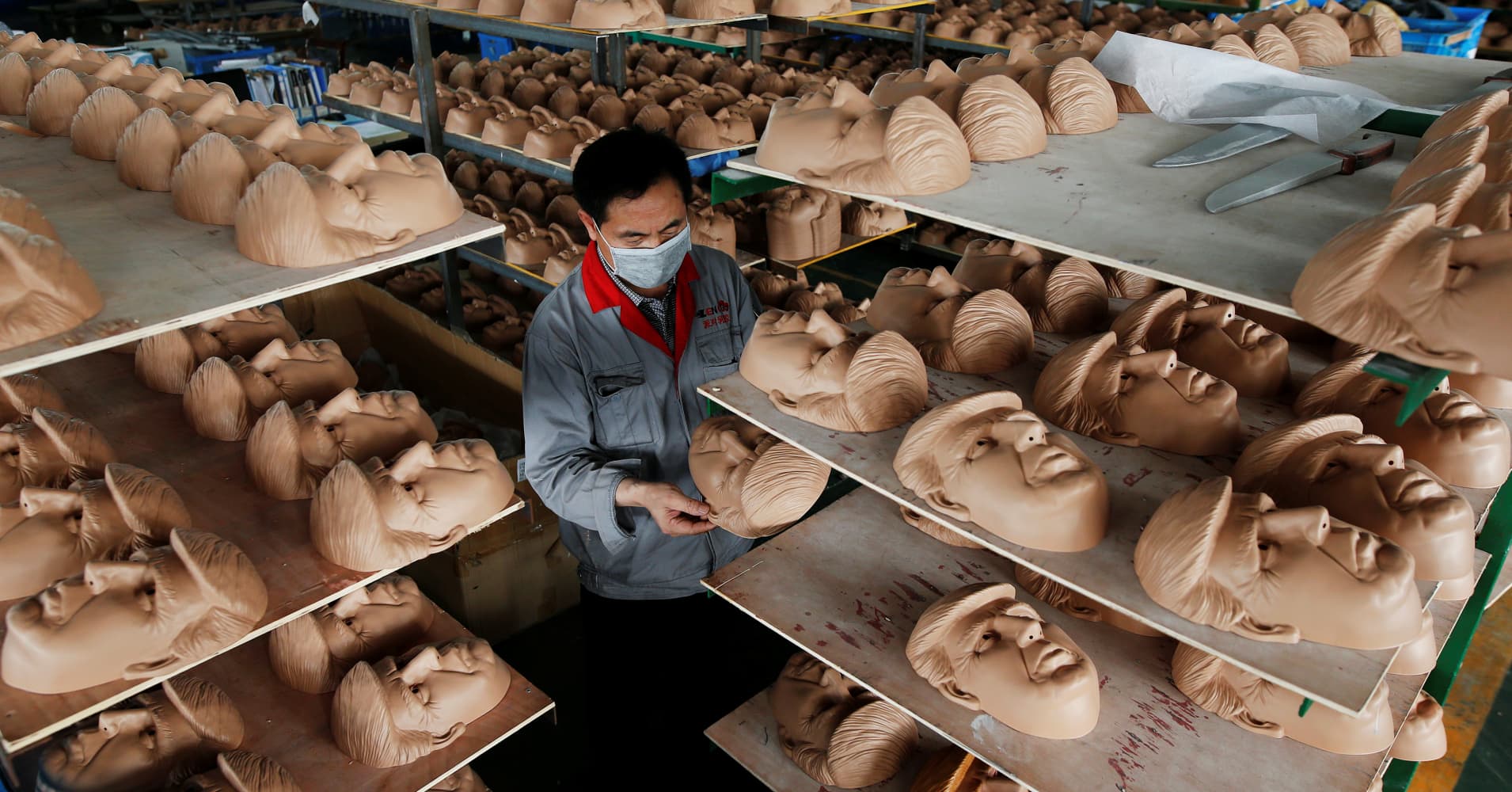
Aly Song | Reuters
A worker checks a mask of U.S. Republican presidential candidate Donald Trump at Jinhua Partytime Latex Art and Crafts Factory in Jinhua, Zhejiang Province, May 2016.
A survey of small and medium-sized enterprises in China beat expectations even amid an ongoing trade dispute with the U.S.
On Thursday, Caixin and IHS Markit reported October Purchasing Managers’ index (PMI) was 50.1 for October. Analysts polled by Refinitiv had expected the reading to have dipped slightly to 49.9 from 50.0 in September.
A reading above 50 indicates expansion, while a reading below that signals contraction.
On Wednesday, China reported the country’s weakest manufacturing growth in more than two years.
Official manufacturing PMI was 50.2 in October — lower than the 50.6 that analysts expected in a Reuters poll. The official manufacturing PMI was 50.8 in September.
China’s official PMI gauge focuses on large companies and state-owned enterprises, while the private survey by Caixin and IHS focus on small and medium-sized enterprises.
October was the first full month after the latest U.S. tariffs went into effect. Washington and Beijing slapped additional tariffs on each other’s goods on Sept. 24.
Economic data from China is being closely watched amid a trade war between the two economic giants.
Although economic data out of China has held up so far this year even amid the trade dispute with the U.S., analysts said many exporters were rushing to ship products before American tariffs on the goods hit.
Already, China reported slower-than-expected growth of 6.5 percent in the third quarter of the year — its weakest pace since the first quarter of 2009.
Even before the escalation in trade tensions with the U.S. this year, Beijing was already trying to manage a slowdown in its economy after three decades of breakneck growth.
The trade war with the U.S. is now complicating those efforts, with analysts expecting Beijing to boost policy easing measures to manage the threats from the bilateral dispute that may derail growth.
— Reuters contributed to this report.
Be the first to comment